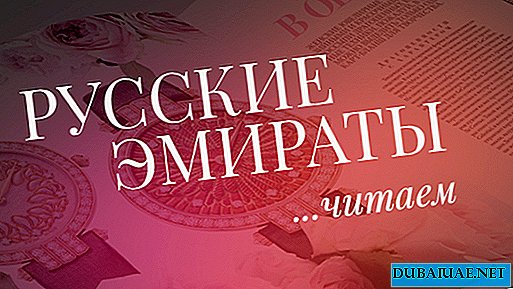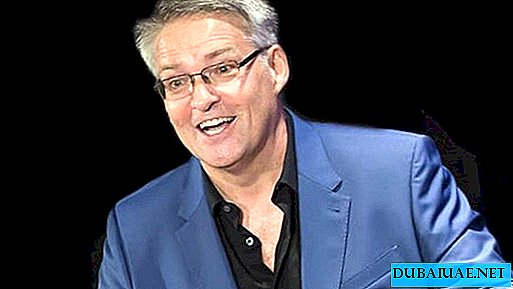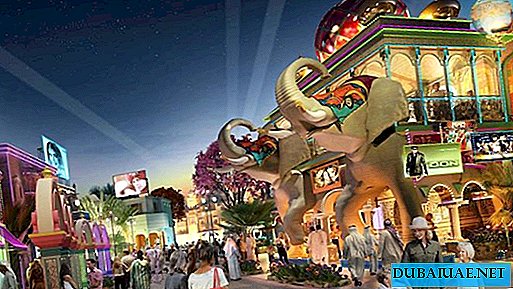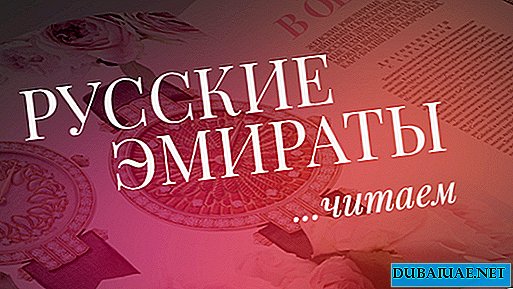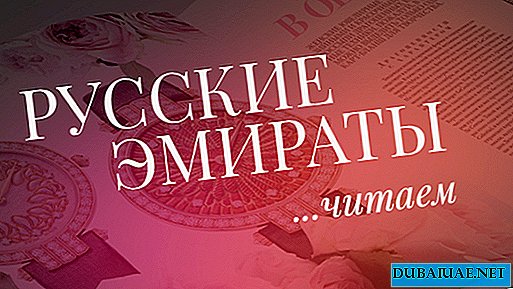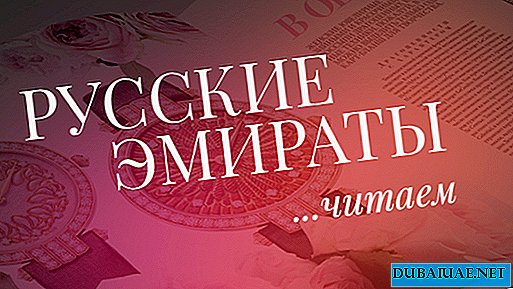
Our author met with the Deputy General Director of the Dubai Fire Safety Service, team leader Ahmed Obaid Alsayegh, who agreed to answer the "hot" questions that concern all residents of the Emirates.

Mr. Alsaeg: Not. According to statistics, the number of fires in Dubai is not higher than in other major cities, whether Paris, London or Singapore. The firefighter profession is one of the most dangerous in the world.
What is the special complexity of your work in Dubai?
Mr. Alsaeg: In addition to the well-known difficulties of our profession, it is necessary to add, of course, meteorological conditions - high temperatures, strong winds and lack of precipitation. In Dubai, it is also an architectural feature: high-rise buildings, their number and variety. As well as the unstoppable development of the city, which constantly poses new challenges for us, which have no analogues in the world. Therefore, our employees all the time take part in a wide variety of trainings in order to prepare for any, even the most abnormal situation.
How to become a firefighter in Dubai? Is this profession accessible to all residents of the city?
Mr. Alsaeg: According to our internal regulation, at present, only UAE citizens can become official employees of the Dubai Fire Safety Service (which is a division of the Department of Civil Defense of Dubai - Note. Ed.). Our goal is to attract as many local citizens as possible into our ranks, and I am happy to note that we have a huge number of requests, there is even a queue! The main thing is that a person should be a firefighter in his soul, and we will teach him the rest at our Academy. We have both young people and fathers of families. At present, 1,600 firefighters work in Dubai, the number of which we will increase to 3,000 in the coming years. In addition, the construction of six new fire stations has already been planned, taking into account the speed with which our city is growing.
In many countries, there is the opportunity to volunteer and help firefighters during fire fighting.
Mr. Alsaeg: We have no such practice and are not expected in the near future. But in Dubai there are a number of fire safety agencies with which we work closely in crisis management.

Mr. Alsaeg: We have a helicopter, but we use it for other purposes. In our climate, when extinguishing a fire, a helicopter is more likely to do harm than help, because the propeller only blows the flame and, possibly, transfers it to neighboring buildings. There are countries that use helicopters to extinguish high-altitude fires or to save people from roofs. But I repeat - in Dubai it is impossible. We “choke the fire from within” by cutting off oxygen to it. For the same reason, we do not use airplanes, which are very common, for example, in the USA, France, Australia.

Mr. Alsaeg: Not certainly in that way. At the moment, this device is still under development. Since it is designed only for one person, in the future we will use it for reconnaissance and clarification of the situation on high floors. In the meantime, our Martin Jetpack is just an ad. But in Dubai, for example, we use the latest models of fire trucks. And soon two new cars created especially for skyscrapers will arrive to us - the water pressure in them is especially strong.
But until the 60-70s, the pressure is still not enough?
Mr. Alsaeg: No, not enough. In such cases, the fire is extinguished from the inside.
What about islands and newfangled floating villas? What fire fighting methods are provided for these types of structures?
Mr. Alsaeg: In addition to the land, we also have a maritime unit, which has special fire vessels at its disposal. We use them not only for islands and floating structures, but also in ports.
 Let's go back to the skyscrapers. What floor does your longest fire escape reach?
Let's go back to the skyscrapers. What floor does your longest fire escape reach?
Mr. Alsaeg: In our work in high-rise buildings, the staircase is not as important as in low-rise buildings, since it reaches only the 18th, maximum to the 19th floor. There are also new models of stairs that reach 120 meters in length, that is, about 30 floors. But the size of the trucks on which these stairs are installed is so huge that they simply will not pass through the streets of densely built-up areas like Dubai Marina or Downtown. But this, of course, does not mean that we do not use them at all. You are probably interested in what happens to people who are above the 18th floor, how they are saved.
I will answer you with the example of a fire at The Address Downtown Hotel, where the fire spread to more than 30 floors. It's all about the inner protective lining that all the high-rise buildings of Dubai are equipped with. We managed to evacuate people from the hotel only thanks to this fireproof equipment of fire exits and stairs where the fire did not penetrate, and also thanks to the internal fire extinguishing system.

Please tell us more about the fire in The Address.
Mr. Alsaeg: The fire spread very quickly along the exterior of the hotel, as the gasket between the exterior aluminum panels and the building itself was made of flammable material. The cause of the fire, according to the results of our investigation, was one faulty spotlight. Exactly 2 minutes passed from the moment of receiving the first alarm signal until the arrival of our cars to the hotel. By the way, the so-called reaction time of our units throughout Dubai is from 6 to 8 minutes, and our goal is to reduce it to 4 minutes in the next 5 years. Since the security coordination center, which included me, was located just a few meters from The Address, we were able to track the evacuation of people and the fire extinguishing operation right on the spot.
At the same time, I probably had to solve another problem, because in the immediate vicinity of the fire on New Year's Eve there were about two million people.
Mr. Alsaeg: In the development of fire safety plans for any type of event, whether it be the New Year, a parade or a concert, a large number of agencies participate - firefighters, police, ambulances. We closely cooperate with each other, hold a myriad of meetings, before the general plan of action in emergency situations is approved by all parties. This is a great collaboration, which on December 31, 2015 showed its results. Our strategy, developed well before New Year's Eve, worked flawlessly. Such an unusual incident in its scale cost no casualties.

When the hotel caught fire, many asked themselves the question - will there be fireworks?
Mr. Alsaeg: Many asked themselves the question, when did the hotel collapse ... But seriously, the fire started at 21.30. Around 23.00, His Highness Sheikh Mohammed decided that the fireworks at midnight still take place. We were ready for such a turn of events, because according to our plan, all sections of the Downtown area were under control, and we were all ready for the so-called worst case. And this despite the fact that at that moment the main attention was focused, of course, on the extinguishing of the fire in The Address. By the way, there were firework charges, which we had to urgently neutralize.
You mentioned the flammable materials that were used in the construction of the building.
Mr. Alsaeg: Similar materials are used all over the world, not only in the UAE. But in connection with recent events, their use in our country was banned several months ago. For existing buildings, we are currently developing new technical solutions that will help us protect them from fire.
What are the main causes of fires in Dubai?
Mr. Alsaeg: The reasons are very different. From a barbecue to uncooked cigarette butts, from faulty appliances, overvoltage and bare wires to burning pots in the kitchen. Representatives of more than 200 nationalities live in Dubai, all with their own ideas about fire safety or with their complete absence.

How can we, ordinary people in Dubai, increase our own fire safety?
Mr. Alsaeg: Our strategy is prevention, protection and extinguishing, where prevention comes first. The UAE is one of the few states in the world that has its own security code. This means that any building that is being built on the territory of the UAE, whether it be a school, hospital, factory or residential building, must be equipped with a special fire safety system that is connected to our central operating system. As soon as the sensor is triggered somewhere, even if it is a false alarm, we immediately see it and react accordingly. So we manage to prevent a large number of fires. Monitoring of these systems is around the clock. And, if there is a fire somewhere, and simply technical problems, such as insufficient pressure in the pumps or lack of water in the intake, we immediately see this and take action. All new buildings and partially old ones are equipped with these security systems, which we are connecting step by step to our monitoring. This is approximately 85% of Dubai’s buildings, which do not include private villas. For them, this system is not yet provided. There is an idea to connect new, under construction complexes of private houses, but it is still in development. How can Dubai residents improve their own fire safety? Compliance with evacuation rules and training alarms that we regularly conduct are very important. Often their importance is underestimated. Although, when a fire occurs, knowledge of escape routes and rules saves lives. In this regard, we work closely with developers, training their employees. After all, before the firefighters arrived, it was the building staff who took the first measures to evacuate the residents.

The project of the new world's tallest skyscraper The Tower, the construction of which is planned in the near future, has already passed through your hands?
Mr. Alsaeg: No buildings in Dubai are being built without our approval. Yes, we thoroughly studied this project and gave the green light to the construction of The Tower. So I know what it will be and how many meters it will exceed Bourge Khalifa. By the way, we actively participated in the design of Bourge Khalifa, making our adjustments necessary to comply with all security measures. For example, the tower is equipped with security bunkers, which are located on each 30th floor. This means that in case of fire, we will not evacuate people from the building, but collect them in these bunkers until the fire is extinguished.
Could you tell us about a special case from the long career of a fireman that you will remember for many years?
Mr. Alsaeg: It was December 31, 2015, when I was on the post as part of the New Year's Eve safety committee in Dautown. At 21.30 I get a call that the Address Downtown is on, on the 20th floor of which my whole family is located - my wife, children and grandchildren. At that moment, I simply did not know where to rush: to save relatives or to do my job. When teaching young firefighters, I always tell them: "Put out the fire as if your family was there." And then my turn came. I called my wife, who said that they had already gone down the stairs to the fifth floor and that I would not be worried - everything would be all right. So it, fortunately, was.
Interviewed by Elena Grunits
scrolling = "no" marginwidth = "0" marginheight = "0" allowfullscreen>


